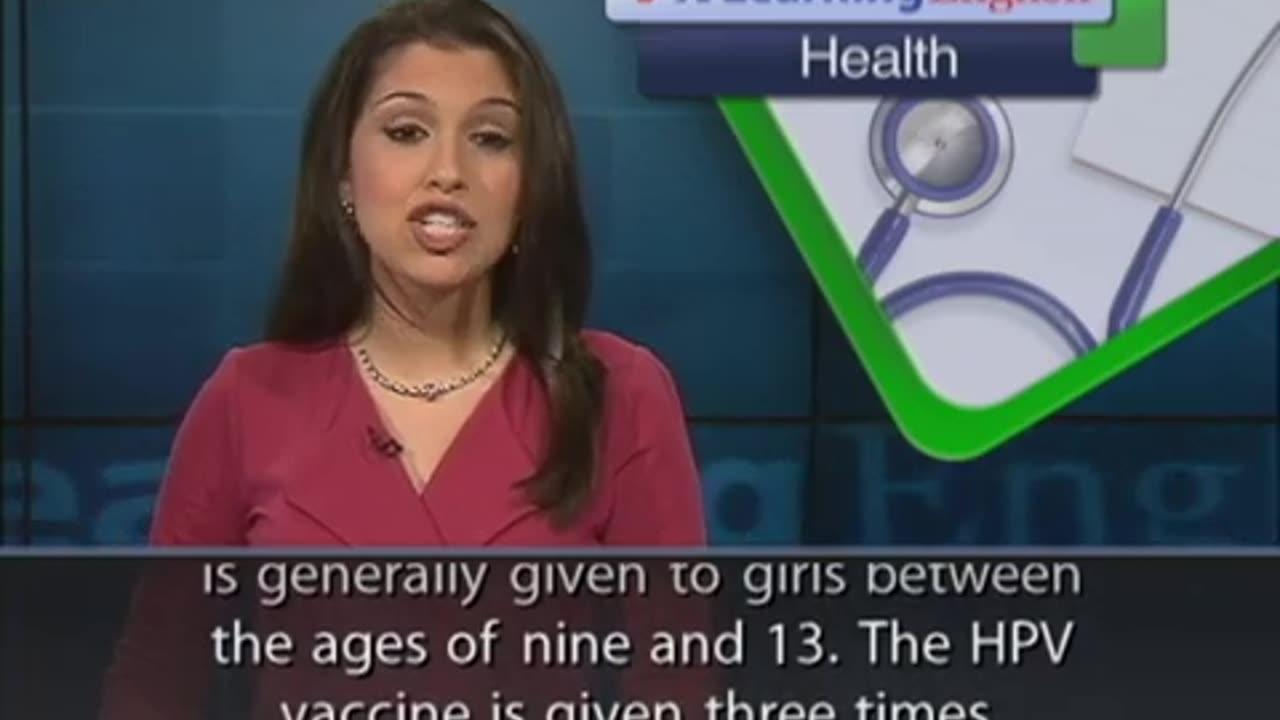
From VOA Learning English, this is the Health Report.
Experts estimate that 275,000 women worldwide die of cervical cancer each year.
Cancer of the cervix kills another woman every two minutes.
Eighty-five percent of the women live in the world's poorest countries.
In richer countries, this kind of cancer is more often diagnosed early and treated.
Cervical cancer is usually caused by the human papillomavirus.
HPV is spread through sex, but a vaccine can protect against it.
The vaccine is generally given to girls between the ages of nine and 13.
The HPV vaccine is given three times, in three separate doses.
It only works if someone has not yet become infected.
Now, two big drug companies have agreed to lower the price for the HPV vaccine for poor countries.
The Global Alliance for Vaccines and Immunization, or GAVI, announced the agreement.
Seth Berkley is the chief executive officer for GAVI.
He says the alliance hopes to provide the vaccine to 30 million girls in more than 40 countries by 2020.Under the agreement, Merck and GlaxoSmithKline will sell their HPV vaccines for about $4.50 for each dose.
Until now, the lowest price for poor countries was $13 per dose.
The vaccine costs more than $100 in developed countries.
Kate Elder is with the medical aid group Doctors Without Borders.
She says the new price is still too high.
She says the drug companies have earned enough profit from vaccine sales.
GlaxoSmithKline says the price has to be high enough so that company stockholders earn money on their investment.
But Kate Elder says the drug companies should be more open about how much it really costs to make the vaccines.
For VOA Learning English, I'm Alex Villarreal.
(Adapted from a radio program broadcast 20May2013)
